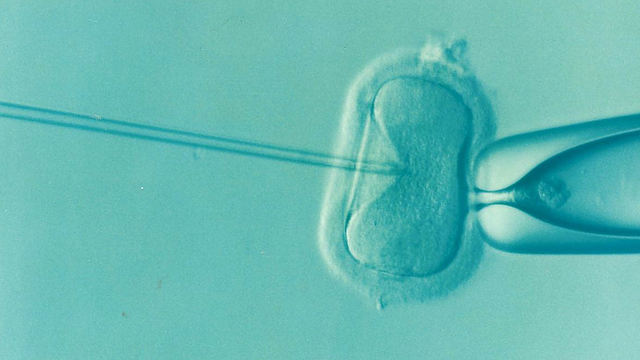 Commentary by Susan Brinkmann, OCDS
Commentary by Susan Brinkmann, OCDSThe commodification of human life is spiraling toward a new low as a leading US scientists claims that it will soon be feasible to rank embryos according to their potential IQ, enabling couples to pick the “smartest” child and discard those that don’t measure up.
The Guardian is reporting on the work of Stephen Hsu, a senior vice president for research at Michigan State University and the owner of Genomic Prediction, who says this new technology would be implemented during the IVF process.
“Accurate IQ predictors will be possible, if not the next five years, the next 10 years certainly,” Hsu told The Guardian. “I predict certain countries will adopt them.”
This new capability raises serious ethical questions as well as concerns about unintended medical consequences and even the potential for deepening existing social inequalities, The Guardian opines.
Peter Donnelly, a professor of statistical science at the University of Oxford and CEO of Genomics Plc, said any such IQ predictions should be treated with “huge caution”, adding: “I have grave misgivings about it on ethical grounds. I think it’s a really bad idea.”
At present, couples undergoing IVF have been able to have their embryos screened for serious diseases, but traits such as height, physical appearance, and intelligence are spread over hundreds of DNA regions and are only partly heritable.
“In the past decade, as vast genetic databases have been established, this picture has changed. Through analyzing many genes, each making a tiny contribution, it has been possible to calculate what are called polygenic risk scores, which give a person’s likelihood of getting a particular disease or having a certain trait,” The Guardian reports.
“Genomic Prediction is the first company to take embryo screening into this grey area of risk forecasting, offering to alert couples if an embryo has an ‘outlier’ score for risk of cancers, diabetes, heart disease, dwarfism or low IQ.”
Hsu believes that knowing an embryo will have a low IQ is something couples have a right to know.
“Maybe the bottom 1% embryo will grow up to be a great person … even be a scientist, but the odds are against it,” he said. “I honestly feel if we can calculate that score and find a real negative outlier there’s an ethical responsibility for us to report that.”
When asked if he thought screening embryos for higher intelligence would be ethically justified, he answered, “Let me just decline to answer that at the moment.”
Professor Simon Fishel, the founder of Care Fertility, agrees with Hsu that parents should have access to this information and questions what is the difference between picking an embryo with a high IQ or sending a child to private school.
“What’s wrong with ranking an embryo if you can rank a child?” he said. “I think there are plenty of people who’d choose embryo Oxford [rather] than embryo A-level failure.”
His faulty comparison overlooks the fact that deciding where to send a child to school is not the same as deciding whether that child should live or die for no other reason than because their IQ may not be the highest in the class.
There are also many uncertainties about exactly what the polygenic scores for intelligence are actually measuring and if they can be applied to genetically related embryos.
“Risk scores for IQ are very hard to interpret and hard to transfer between different countries and different ethnic groups,” said Donnelly. “They’ll be capturing a lot of stuff that isn’t just fundamental biology, maybe genetic markers correlated with ethnicity or where people live.”
He added: “Any kind of implantation choice based on polygenic risk scores is inappropriate, and for intelligence completely inappropriate.”
Hsu disagrees and points to all those folks who once called IVF pioneers “monsters” and “Frankenstein doctors.”
“ . . . [I]t was predicted that these babies would have health problems,” he said. “I am actually reassured by that. IVF is completely normalized now. Everyone who is pointing their finger at [Genomic Prediction] now should go back and read those articles.”
However, they should also read the many articles showing the negative impact the invention of IVF has had on respect for human life, such as how it employs questionable screening processes that result in the massive destruction of viable embryos. These embryos are either discarded outright, placed in cryopreservation facilities, killed during experimentation, or eliminated in the “pregnancy reduction” process where “excess” embryos are killed in order to avoid multiple births.
Some might call these advances “scientific progress,” but when it comes at such a steep price to humanity, it sinks into the category of “scientism” – the excessive belief in the power of scientific knowledge and belief - which is a place no truly intelligent society would ever call "progress."
© All Rights Reserved, Living His Life Abundantly®/Women of Grace® http://www.womenofgrace.com
